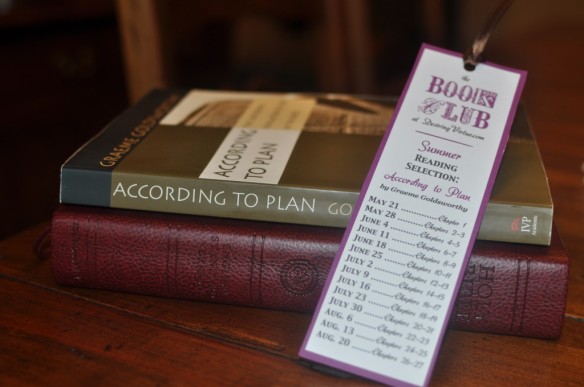A while ago, I told a friend I’d write a paper up explaining the Biblical premise for predestination/election. Instead of doing that, I’ve decided to make it into a series of blog posts. These will serve the purpose of explaining the cores of my belief and, of course, bringing glory to God for His word and His amazing plan (if you are already familiar with my beliefs feel free to skip these. Like I said, I did have a person specifically ask me about this).
Most of my close friends know I consider myself a Calvinist. I guess I’ve never really verbalized it like this, but here it is in writing … I am a Calvinist. I’d also like to point out that I professed a belief in the five basic points of Calvinism before I even knew who John Calvin was, what Calvinism is or any of that (I didn’t even know about the protestant reformation at all. I was basically a poster kid for ignorance). It wasn’t until someone called me a Calvinist that I looked into it and realized it was an accurate term for me.
God brought me to a saving faith in January 2009. I was the queen of blasphemy for years before that claiming to be saved and a Christian when I truly was not. I mention this to point out that I’m still an infant in Christ and have much growing to do.
I am open to civilized discussion about what I believe, but I do ask that you do not viciously attack or mock my beliefs. I would treat any beliefs different from mine with respect and that’s all I ask in return.
The Doctrines of Grace include five points. These five points are commonly referred to as, “The five points of Calvinism,” or “T.U.L.I.P.”. The five points are as follows:
1. (Or T) Total Depravity of Man
2. (Or U) Unconditional Election
3. (Or L) Limited Atonement
4. (Or I) Irresistible Grace
5. (Or P) Perseverance of the Saints
Now I will further explain each point, starting with Total Depravity for today’s post.
Total depravity of man is the concept that because of the Fall the nature of man has been so affected that we cannot believe the Gospel on our own. This suggests that in our natural state we are blind/deaf to the things of the Lord. I know this flies in the face of the commonly accepted “free-will” mindset, but this truly is Biblical. The Bible tells us that while we are in bondage to our sin we will never (and are in fact incapable of) choose God over the sinfulness of our flesh. Therefore, we know our conversion to Christianity is never in any part something we can take even the smallest amount of credit for. It is only by God changing our hearts that we are moved to repent and accept Grace. We have no part in our salvation. God gets all the glory anytime a wretch, such as us, is ever saved. Here is a wonderful quote from J.I. Packer that really drives this concept home:
“Why do you “thank” God for your conversion? It is because you know in your heart that God was entirely responsible for it. You thank God because you do not attribute your repenting and believing to your own wisdom, or prudence, or sound judgment, or good sense. You have never for one moment supposed that the decisive contribution to your salvation was yours and not God’s. You have never told God that, while you are grateful for the means and opportunities of grace that He gave you, you realize that you have to thank, not Him, but yourself for the fact that you responded to His call. Your heart revolts at the very thought of talking to God in such terms. In fact, you thank Him no less sincerely for the gift of faith and repentance than for the gift of a Christ to trust and turn to.” -J.I. Packer
The amount of scripture references to the evilness and wickedness of man in his natural state is endless. A great one:
As it is written: “None is righteous, no, not one; no one understands; no one seeks for God. All have turned aside; together they have become worthless; no one does good, not even one.” “Their throat is an open grave; they use their tongues to deceive.” “The venom of asps is under their lips.” “Their mouth is full of curses and bitterness.” “Their feet are swift to shed blood; in their paths are ruin and misery, and the way of peace they have not known.” “There is no fear of God before their eyes.” Romans 3:10-18
Here are a few more:
Ps. 51:5, Ps 58:3 and Rom 5:18-19 all touch on how we are sinners from our conception and how because of Adam being the head of the human race we have inherited his sinful nature. It’s interesting to note, I have yet to find verses that suggest we are innocent or any bit righteous at any point before God chooses to save us from our wicked ways. Scripture makes it painstakingly clear that we will only become righteous if it is God’s will.
Gen 6:5, Job 15:14-16, Ps 130:3, Ps 143:2, Pro 20:9, Ecc. 7:20, Isa 64:6, Jer 13:23, John 3:19, Rom 3:9-12, Jam 3:8, 1 John 1:8 – Because of our sinful, wicked ways we are literally incapable of doing good. (Good by God’s standard not the world’s.)
John 6:44, John 6:65, John 8:43-45, John 10:26, John 12:37-41, Rom. 3:10 -11 – Again, because of our sinful nature Scripture is clear that we are unable to come to God (or believe in him) by our own free will. Jesus was very clear on this in his teachings.
And lastly, we are unable to understand the Truth. John 14:17, 1 Cor. 2:14
Be Blessed,

*This is a post from the archives*







